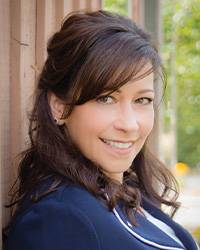Barrier Busting: Uncovering Benefits for the Profession
January 13, 2023
by Kimberly Scott, CAE

The challenges of the last few years have changed us individually and how we work. These changes will ripple into the future. The thought of addressing some of these changes may make you feel overwhelmed. Some changes may seem too monumental and paralyze your ability to decide where to start. Fortunately, some of these we can tackle together.
The WSCPA Board of Directors took on the challenge last year to review and update our strategic plan, focusing on goals to address the challenges we not only see now, but also those we envision will be facing us in the future. We included a wide range of participants in the process in order to gather diverse insights. Past Board members, Foundation Trustees, our Diversity, Equity and Inclusion Council and student members provided valuable input and feedback. (You can read more about the strategic planning process and the several areas of focus that were identified in Sara Bailey’s article, here.)
The key area of dedicated focus of the strategic plan, which is still being finalized, will not be a surprise to most of you. Many members have shared how challenging it is to find staff to hire and how firms have been flexible in designing working arrangements to bring in or retain talent. This issue is likely to become escalated if it is not addressed. The enrollment in accounting programs at community colleges and universities has decreased. The percentage of accounting students deciding to sit for the CPA exam has also dropped. The “CPA pipeline” that brings new CPAs into the profession is absolutely a concern.
Focusing on barriers to the profession and barriers for staying in the profession appeared prominently in our strategic planning group discussions. This insight from our focus groups reminded me of a story about how removing barriers often results in a ripple effect of benefits.
CURB CUTS: A BARRIER BUSTED
The story is about curb cuts, the dips in the sidewalk that connect to the street. Do you know how these began? They were implemented following World War II. Disabled veterans were returning home and finding difficulty maneuvering their sidewalks and streets. The idea of adding curb cuts was not met with overwhelming approval, as it was a very costly and time-intensive project that many saw as serving “just a few” people. However, as curb cuts are now standard, we know this investment was approved. Think about how many other problems these curb cuts solved that were not even considered at the time the solution was proposed. Removing one barrier now also provides benefits to strollers, shopping carts, bicycles, as well as a general ease in crossing the street. Removing the barrier did not make the sidewalk less valuable.
THE BARRIER: 150-HOUR REQUIREMENT
Turning back to the CPA profession, are there some barriers to becoming a CPA that could be removed, while still allowing for those entering the profession to be well equipped, and leave the profession unharmed? One example is the requirement to sit for the CPA exam at 120 hours. A student would still need 150 hours of education to obtain their license, but they could start the testing process while in school, shortly after learning their area of expertise, and when they are already used to studying and taking exams. Contrast this with the current reality many candidates face: trying to juggle taking the exam and full-time work. Statistics show that states where the 120-hour option already exists saw about a 25 percent increase in students starting the exam. The WSCPA has been working with the Washington State Board of Accountancy during the last year to make this change and we hope to see the rule officially change in early 2023.
THE BARRIER: THE STORIES WE TELL
We are also working to identify barriers within the profession and our organizations to help us attract and retain CPAs. While this challenge is far more complex, there have been some great ideas from some thought leaders in the profession to get us started. Here is a simple example. We all know the value of the CPA, the doors it can open, the opportunities it can bring. However, we often tell or hear the stories about how horrible the working hours are, or how difficult it is to move up into leadership roles. Selling something when only highlighting—and maybe even exaggerating—the negative parts of it is an arduous task.
THE BARRIER: AWARENESS AS A LEADER
I challenge us to personally become more aware of the barriers we have as well. I believe as a leader we should be welcoming feedback, be willing to be respectfully contradicted, admit when we are wrong, and acknowledge openly when others are right. If we are not learning and being challenged, we probably have created barriers within our own work cultures.
Thank you for being a part of the Washington Society of CPAs as we welcome a new year and bust barriers for the good of the profession and both current CPAs and future ones!

Kimberly Scott, CAE, is President & CEO of the WSCPA. You can contact Kimberly at kscott@wscpa.org.
This article appears in the winter 2023 issue of the Washington CPA magazine. Read more here.
Related Blog Posts
